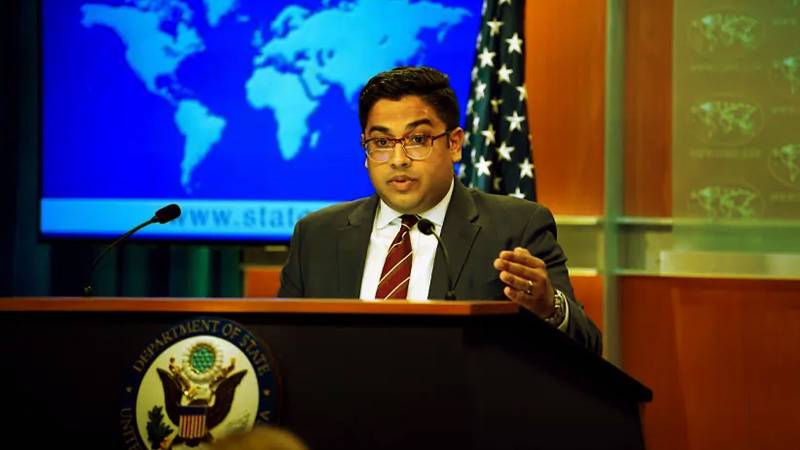
The United States has reaffirmed its support for Pakistan in its efforts to combat terrorism and border challenges as the country fights to curtail the evil of terrorism.
At a press conference in Washington, Principal Deputy Spokesperson for the US State Department, Vedant Patel, stated, "We confirmed with Pakistan today our bilateral intention to increase our capacity to meet emerging threats, specifically to increase communication on terrorism."
The spokesperson addressed a question about the recent security discussions between Islamabad and Washington, stating that both countries have decided to work together in a number of areas, such as counter-IED investigations, technical support at the nation's western border, etc., in order to prevent and deter terrorist groups.
His statements coincide with the fact that Pakistan has seen a surge in terrorist attacks in recent months, with numerous assaults aimed at civilians, law enforcement, and security personnel in various parts of the country.
Concerns regarding the Tehreek-e-Taliban Pakistan (TTP) and other militant groups using Afghan territory have been brought up repeatedly by Pakistan with the Taliban government.
In his remarks, Patel alludes to a high-level summit between the two countries that took place in Washington earlier this week and focused on the state of counterterrorism in the region.
Ambassador Elizabeth Richard, the US Department of State's counterterrorism coordinator, and Ambassador Syed Haider Shah, the Additional Foreign Secretary for the UN and OIC, co-chaired the meeting.
According to a statement released by the Foreign Office (FO), both countries acknowledged during the meeting that working together to combat ISIS-Khorasan, also known as Daesh, the TTP, and other terrorist groups will improve regional security and serve as an example of bilateral and regional cooperation to combat transnational terrorist threats.

